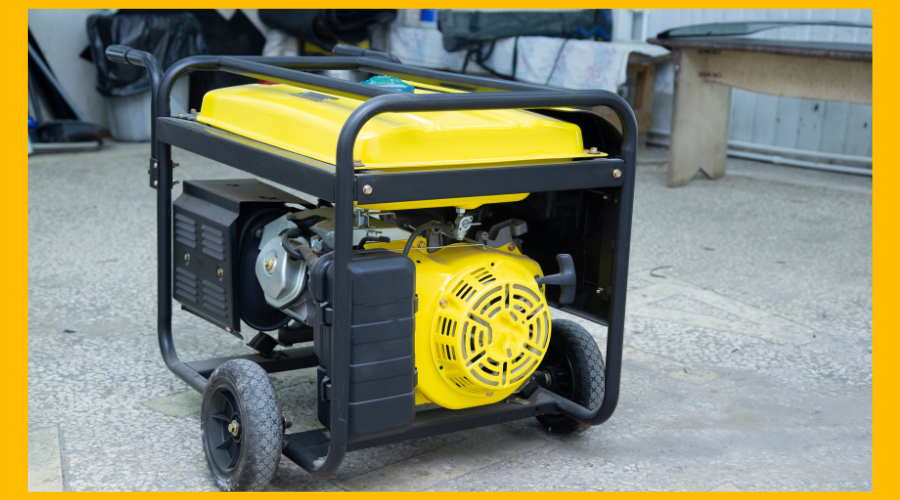

Portable generators play a crucial role when the electricity supply goes out in emergencies. As a fallback option for power supply, you must ensure that your generator is kept in operational condition to not let you down during challenging times.
Portable gas generators need regular servicing and preventive maintenance to operate efficiently when needed. This blog will be all about maintaining your gas generator to operate efficiently in need.
Gas generators come in a variety of models with different power ratings. Many gas generator brands offer various features, and generators with the same power rating can significantly differ as they belong to other brands. Hence, studying the user manual is the best approach to learning more about maintenance. Most good brands supply a detailed manual with all the information you need for the operational maintenance of the generator. Proactively read this document so that you don't run into generator problems during load-shedding.
Gas generator performance can decrease if gas in the fuel tank is not removed after operation. Stale gas sticks to the internal surface of the generator components and valves as gum deposits. These deposits obstruct the fuel flow if you turn your generator the next time, making the generator deliver a patchy performance. So please don't be lazy and remove the leftover gas by storing it separately in a gas container after the use session.
Power outages are unpredictable, and you cannot expect to rely on the power company's estimate to restore electricity during load-shedding. Hence, it is always best to keep a stock of extra gas. Not only this, but a generator running on fumes can cause damage to the engine. The least you can do is store enough to refill the tank again. Keeping lubricants and extra oil filters in the house is s also essential in case of a breakdown at the last moment.

Proper storage is essential to maintaining the running condition of the generator. Since you do not use a gas generator every day, adequate storage can lengthen the usage life of the portable gas generator. A generator kept outside for an extended time would become dusty, and even moss can start growing on the surface. Dust and other impure particles can enter the generator's internal components and obstruct them by hindering their movement.
Investing in a cover is a perfect strategy to safeguard your generator against dust. Generator covers are specially manufactured to be waterproof and dust-resistant. Store the generator in a shed with arid surroundings.
Attaching too many appliances to the generator can damage it. All generators have a specified wattage rating. Make sure you know the running rating of your generator so that you do not accidentally attach too many appliances that can exceed the voltage rating of a generator. Even if you exceed the load slightly regularly, it can still cause damage to the generator.
Apart from applying the correct load, it is crucial to follow the proper procedure. The generator should be operational before you connect all the appliances. Don't connect all the appliances before you start the generator. Moreover, make sure to shut all appliances before turning off the generator. Abruptly turning off the generator while it is still under load can cause damage to the gas generator.
Similar to any other engine, your gas generator requires regular oil changes. It's crucial to perform the first oil change relatively soon after 8 to 30 hours of initial use. This initial change is essential to remove debris or particles accumulated during the generator's transportation. Subsequent oil changes should occur approximately every 100 usage hours. However, the exact frequency depends on various factors, such as the brand of the generator, how often it's used, and the environmental conditions, including temperature and level of dust. Referring to the user manual for precise guidance on oil change intervals is recommended. More frequent oil changes are necessary in dusty environments to prevent contamination due to dust buildup.
Considering these simple yet valuable tips, you can significantly extend the lifespan of your gas generator and keep it running smoothly. Don't miss out on the opportunity to save money and avoid the hassle of frequent repairs. Follow these guidelines today and enjoy the benefits of a long-lasting and efficient gas generator!